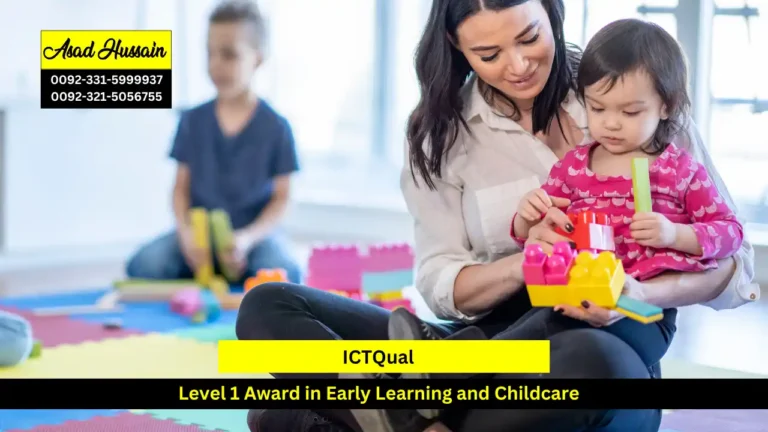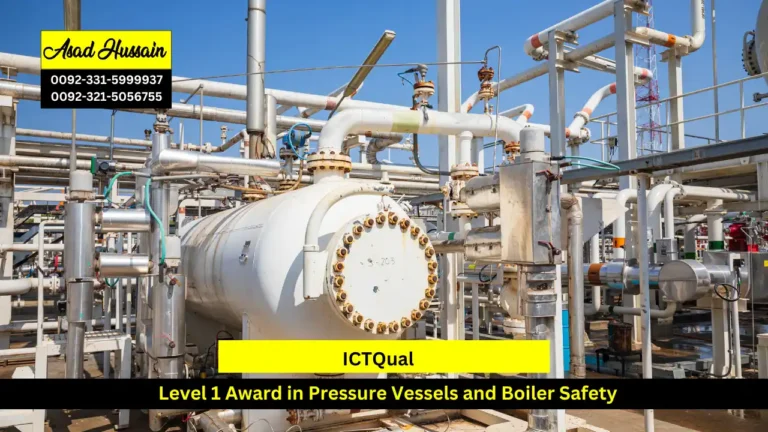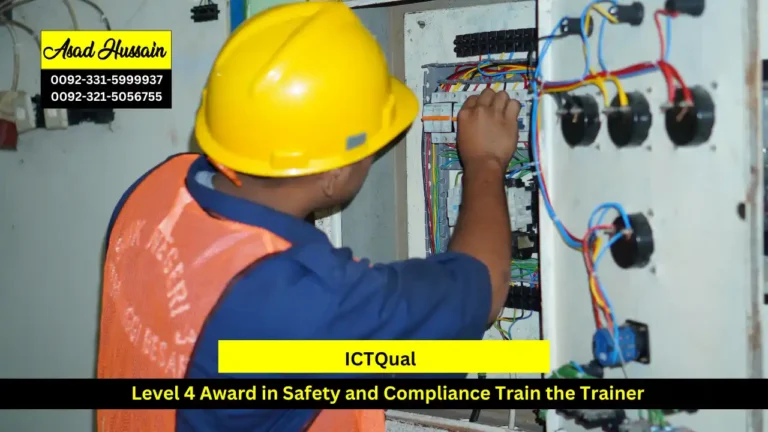In today’s world, safeguarding children is of utmost importance, requiring dedicated professionals equipped with the right knowledge and skills to protect vulnerable young individuals. The ICTQual Level 4 Award in Safeguarding Children Train the Trainer stands out as a crucial qualification designed to empower trainers in delivering effective safeguarding training programs. This award not only equips trainers with comprehensive knowledge of safeguarding principles but also prepares them to educate others within their organizations or communities. Let’s explore how this qualification plays a pivotal role in safeguarding children and nurturing a safer environment for future generations.
The ICTQual Level 4 Award is specifically tailored for individuals passionate about safeguarding children and committed to making a positive impact in their professional roles. This qualification provides trainers with the expertise needed to deliver high-quality safeguarding training, ensuring that frontline staff, educators, caregivers, and community members are well-prepared to recognize signs of abuse, implement safeguarding measures, and support children in need. By becoming certified trainers, individuals gain credibility and authority in safeguarding practices, enabling them to effectively disseminate essential knowledge and promote best practices in child protection.
By obtaining the ICTQual Level 4 Award in Safeguarding Children Train the Trainer, participants contribute significantly to global efforts in child protection. They play a crucial role in building a safer environment where children can grow and thrive without fear of harm or exploitation. Through effective training and advocacy, certified trainers empower others to uphold safeguarding principles, adhere to legal obligations, and create supportive networks that prioritize children’s safety and well-being.
In conclusion, the ICTQual Level 4 Award in Safeguarding Children Train the Trainer is a pivotal qualification for professionals dedicated to safeguarding children and promoting a culture of protection within their communities and organizations. By investing in this award, trainers not only enhance their own capabilities but also contribute to the broader mission of ensuring every child’s right to a safe and nurturing environment. Take the initiative to become a certified safeguarding trainer and make a lasting difference in safeguarding practices worldwide.
Program Highlights
Mandatory Units
- Introduction to Safeguarding Children
- Safeguarding Procedures and Risk Assessment
- Communication and Interviewing Skills
- Child Development and Impact of Abuse
- Legal and Ethical Considerations in Safeguarding
- Designing and Delivering Safeguarding Training
- Assessing Learners and Evaluating Training Effectiveness
- Safeguarding Policy Development and Implementation
- Reflective Practice and Continuous Improvement
Entry requirements for a Level 4 Award in Safeguarding Children Train the Trainer Course may vary depending on the institution offering the program. However, typical entry requirements for such a course may include:
- Prospective candidates are typically required to have a minimum educational attainment equivalent to a level 3 qualification. This could include qualifications such as A levels, vocational certificates, or equivalent qualifications in a relevant field such as social work, education, psychology, or healthcare.
- While not always mandatory, candidates are often expected to have relevant work experience in fields related to child protection, safeguarding, or training. This could include roles such as social workers, educators, healthcare professionals, youth workers, or individuals working in child welfare organizations.
- Candidates should have a foundational understanding of safeguarding principles and practices, including awareness of legislation, policies, and procedures related to child protection. This may be demonstrated through previous training, work experience, or relevant certifications.
- Since the course materials and assessments are typically conducted in English, candidates should have a proficient level of English language skills. This may require candidates to provide evidence of English language proficiency
Introduction to Safeguarding Children:
- Understand the importance of safeguarding children and the basic principles underlying child protection.
- Identify key stakeholders involved in safeguarding and their roles in protecting children.
- Explain the legal and ethical responsibilities associated with safeguarding children.
Safeguarding Procedures and Risk Assessment:
- Develop comprehensive safeguarding procedures to identify, assess, and manage risks to children’s safety.
- Conduct effective risk assessments to mitigate potential harm and safeguard children in various settings.
- Implement safeguarding protocols and emergency response strategies to ensure immediate protection when risks are identified.
Communication and Interviewing Skills:
- Develop effective communication skills to engage with children, families, and stakeholders in safeguarding contexts.
- Apply appropriate interviewing techniques to gather information from children and assess their well-being sensitively.
- Demonstrate empathy and professionalism in communicating safeguarding concerns and supporting disclosure processes.
Child Development and Impact of Abuse:
- Analyze the stages of child development and how abuse can impact physical, emotional, and cognitive growth.
- Identify signs and symptoms of abuse across different developmental stages and contexts.
- Recommend age-appropriate interventions and support mechanisms to promote recovery and resilience in abused children.
Legal and Ethical Considerations in Safeguarding:
- Interpret relevant legislation, policies, and ethical frameworks governing safeguarding practices.
- Apply legal principles and guidelines to ensure compliance with statutory obligations and safeguarding standards.
- Evaluate ethical dilemmas in safeguarding and make informed decisions that prioritize children’s rights and well-being.
Designing and Delivering Safeguarding Training:
- Design tailored safeguarding training programs that address specific needs and challenges within diverse settings.
- Utilize adult learning principles to create engaging training materials and activities that enhance participant understanding and retention.
- Facilitate interactive training sessions that promote awareness, knowledge acquisition, and skill development in safeguarding practices.
Assessing Learners and Evaluating Training Effectiveness:
- Develop assessment criteria to measure learners’ comprehension and application of safeguarding knowledge and skills.
- Use formative and summative assessment methods to gauge training effectiveness and identify areas for improvement.
- Collect feedback from learners and stakeholders to refine training content, delivery methods, and learning outcomes.
Safeguarding Policy Development and Implementation:
- Formulate safeguarding policies and procedures that align with organizational objectives and regulatory requirements.
- Implement robust policies for reporting, recording, and responding to safeguarding concerns promptly and effectively.
- Monitor policy adherence and update procedures based on emerging trends, research findings, and legislative changes.
Reflective Practice and Continuous Improvement:
- Engage in reflective practice to evaluate personal performance and decision-making in safeguarding situations.
- Identify learning opportunities and professional development goals to enhance safeguarding competencies.
- Foster a culture of continuous improvement by integrating feedback, research findings, and best practices into safeguarding strategies and training initiatives.
These learning outcomes equip individuals with the knowledge, skills, and ethical understanding needed to effectively safeguard children and create safer environments where their rights and well-being are prioritized.
The course on Safeguarding Children is essential for a wide range of professionals and individuals committed to ensuring the safety and well-being of children in various capacities. It is particularly beneficial for educators, social workers, healthcare professionals, law enforcement officers, childcare providers, and volunteers working in community organizations. This course is also valuable for parents and guardians seeking to enhance their understanding of safeguarding principles and practices to protect children from abuse, neglect, and exploitation. Whether you’re starting a career in child protection, advancing in your current role, or simply aiming to contribute to creating safe environments for children, this course provides the knowledge, skills, and ethical framework necessary to effectively safeguard children and support their holistic development.






